Morocco is a country of striking variety. From bustling cities and maze-like medinas to quiet mountain villages and vast desert dunes. From the rhythmic call to prayer echoing through Marrakech’s alleyways to the stillness of the Sahara under a sky full of stars, Morocco is a country of contrasts, where Arab, Berber, and French influences blend into something entirely unique. Whether you’re sipping mint tea in a blue-washed town, trekking through the High Atlas, or wandering historic kasbahs, every moment in Morocco offers something unexpected.
I had the chance to explore Morocco in 2023, and it quickly became one of my favorite places I’ve ever traveled. There’s just something about the desert that calls to me, something sacred and ancient.
So here’s a full travel guide to help you plan your journey — from must-see destinations and cultural etiquette to local phrases, responsible travel tips, and more.

Morocco at a Glance
Electricity & Plugs
Plug type: Type C and Type E (European standard)
Voltage: 220V
Tip: Bring a universal adapter. Most modern devices support 220V, but check before plugging in.
Best Time to Visit
- March to May / September to November: Pleasant weather, ideal for cities, mountains, and desert trips
- June to August: Hot, especially inland and in the Sahara; better for coastal areas like Essaouira and Agadir
- December to February: Cooler and quieter; snow in the Atlas Mountains, chilly desert nights
Currency & Money
Currency: Moroccan Dirham (MAD or DH)
ATMs: Widely available in cities; rural areas may have limited access
Tipping: Common practice; round up or tip 5–10% at restaurants and for services
Language
Official Languages: Arabic and Amazigh (Berber)
French: Widely spoken, especially in cities and for business
Useful Phrases:
- Salam Alaikum – Hello / Peace be upon you
- Shukran – Thank you
- La, shukran – No, thank you
- Labas? – How are you? (Darija/Moroccan Arabic)
English is spoken in tourist areas, but French or basic Arabic is helpful.
Other Important Info
Time Zone: GMT+1 (Daylight Saving may apply)
SIM Cards: Inwi, Maroc Telecom, and Orange — available at airports and kiosks
Dress Code: Modest dress is respectful, especially in medinas and rural areas; women may prefer covering shoulders and knees
Safety Tip: Watch out for unofficial guides in medinas — firmly say “La, shukran” if you don’t want help

Top Destinations & What to Do
1. Marrakech
Vibe: Vibrant, chaotic, colorful
Why Go: The heart of Moroccan culture, full of life and sensory overload
Top Things to Do:
- Explore the Jemaa el-Fnaa square at night — food stalls, snake charmers, musicians
- Visit Bahia Palace and El Badi Palace
- Get lost in the Medina (old city) and shop for rugs, spices, lamps
- Relax in a traditional hammam (public bath)
- Enjoy modern Moroccan art at MACAAL (Museum of African Contemporary Art Al Maaden)
Escape to the serene Majorelle Garden, designed by Yves Saint Laurent

2. Fes (Fez)
Vibe: Medieval, spiritual, intellectual
Why Go: Home to the world’s oldest university and a living relic of Islamic civilization
Top Things to Do:
- Wander the Fes el-Bali medina, a UNESCO World Heritage Site
- Visit the University of Al Quaraouiyine (founded in 859!)
- Tour the Chouara Tannery for an eye-opening (and nose-wrinkling) look at leather production
- Check out the Madrasa Bou Inania and Al-Attarine Madrasa
- Enjoy rooftop views over the bustling labyrinth of alleys
- Try Fassi cuisine, especially the rich pastilla (savory pie with pigeon or chicken and almonds)
3. Chefchaouen
Vibe: Dreamy, tranquil, photogenic
Why Go: The “Blue Pearl” of Morocco nestled in the Rif Mountains
Top Things to Do:
- Wander the blue-washed alleys and take endless photos
Hike to the Spanish Mosque for panoramic sunset views
Explore nearby Akchour Waterfalls and Talassemtane National Park - Visit the Kasbah Museum in the main square
- Sip mint tea at a terrace café with mountain views
Shop for handmade wool garments and woven goods
4. Sahara Desert (Merzouga or M’Hamid)
Vibe: Epic, vast, humbling
Why Go: Bucket-list worthy camel treks and nights under starry skies
Top Things to Do:
- Ride camels across the Erg Chebbi dunes (Merzouga) or Erg Chigaga (M’Hamid)
- Spend a night at a Berber desert camp
- Watch the sunrise and sunset over endless sandscapes
- Go sandboarding or take a 4×4 dune ride
Listen to traditional Gnawa music around a campfire - Visit nomadic families and learn about desert life

5. Essaouira
Vibe: Breezy, laid-back, artsy
Why Go: Atlantic coastal charm, strong winds, and creative energy
Top Things to Do:
- Stroll the Skala de la Ville ramparts overlooking the sea
- Watch fishing boats unload their catch in the harbor
- Browse art galleries and wood carving workshops
- Chill at rooftop cafés with fresh seafood
- Go windsurfing or kitesurfing (windy city!)
- Explore nearby beaches like Sidi Kaouki
6. Atlas Mountains
Vibe: Rugged, peaceful, scenic
Why Go: Outdoor adventures and Berber villages just hours from city life
Top Things to Do:
- Hike in the Toubkal National Park and climb Mount Toubkal (North Africa’s highest peak)
- Visit Imlil and Aroumd for village life and homestays
- Trek through the Ourika Valley for waterfalls and Berber markets
Take a day trip to the stunning Ouzoud Falls - Visit Aït Benhaddou, a fortified village and filming location for Game of Thrones and Gladiator

7. Rabat
Vibe: Elegant, political, underrated
Why Go: Morocco’s capital blends history with quiet coastal charm
Top Things to Do:
- See the Hassan Tower and Mausoleum of Mohammed V
Walk through the Kasbah of the Udayas, a calm fortress neighborhood - Stroll along the Bouregreg River and take a boat ride
- Explore Chellah, an eerie Roman-Moorish necropolis
- Visit art exhibits at Mohammed VI Museum of Modern and Contemporary Art
- Relax at the nearby beach or café-hop in the Medina
8. Tangier
Vibe: Coastal, literary, mysterious
Why Go: Gateway between Africa and Europe with a cosmopolitan edge
Top Things to Do:
- Visit the American Legation Museum, the first U.S. public property abroad
- Explore the Kasbah Museum and Medina
Relax at Café Hafa, a cliffside spot once frequented by The Beatles - Walk the Corniche and take in views of the Strait of Gibraltar
- Venture to the Caves of Hercules and Cap Spartel
9. Ouarzazate & Draa Valley
Vibe: Surreal, cinematic, desert frontier
Why Go: Gateway to the Sahara and location of epic film shoots
Top Things to Do:
- Tour Aït Benhaddou (UNESCO World Heritage site)
- Visit the Atlas Film Studios, the largest in the world
- Explore ancient kasbahs like Kasbah Taourirt
- Drive through the Draa Valley — palm groves, oases, and mud-brick villages
- Start multi-day desert treks or off-road adventures here
10. Agadir & Taghazout
Vibe: Sunny, surfy, modern
Why Go: Beach time and wellness escapes
Top Things to Do:
- Surf in Taghazout or take a surf camp
- Relax at a seaside resort in Agadir
- Visit Paradise Valley, a hidden oasis with rock pools
- Enjoy beachfront cafés and coastal walks
- Take yoga classes and wellness retreats in tranquil settings

Suggested Itineraries
Whether you have a week or a month, Morocco offers countless ways to explore. These sample itineraries help you hit the highlights — or dive deeper into culture, landscapes, and local life.
1. Classic Morocco (7–10 Days)
Perfect for first-timers wanting a mix of cities, history, and desert
Day 1–2: Marrakech
Explore the medina, Bahia Palace, souks, and Majorelle Garden
Day 3: Atlas Mountains
Day trip to Imlil or Ourika Valley for hikes and Berber villages
Day 4–5: Ouarzazate & Aït Benhaddou
Drive through the Tizi n’Tichka Pass and stay in a kasbah town
Day 6–7: Sahara Desert (Merzouga)
Camel trek, camp overnight under the stars, sunrise on the dunes
Day 8–9: Fes
Medieval medina, tanneries, spiritual sites
Day 10: Return via Casablanca or Marrakech
2. Coastal & Cultural (10–14 Days)
For laid-back travelers who prefer ocean breezes, art, and history
Day 1–2: Casablanca
Hassan II Mosque, art deco streets, seafood on the Corniche
Day 3–4: Rabat
Kasbah of the Udayas, Chellah, quiet museums
Day 5–6: Tangier
Clifftop cafés, caves of Hercules, literary history
Day 7–8: Chefchaouen
Relax in the blue alleys, hike to the Spanish Mosque
Day 9–10: Fes
Explore spiritual and cultural depth
Day 11–14: Essaouira
End by the Atlantic — kitesurfing, music, fresh fish, and artisan markets
3. Off the Beaten Path (2–3 Weeks)
For deeper travel through lesser-known regions and landscapes
Start in Fes – Spend 2–3 days exploring the medina
Head to Meknes & Volubilis – Visit Roman ruins and imperial charm
Trek in Middle Atlas – Stay in Azrou or Ifrane, see cedar forests
Sahara via Midelt & Merzouga – Cross dramatic terrain, desert camping
Anti-Atlas & Draa Valley – Visit remote oases and Berber towns like Zagora
Explore Tafraoute – Pink granite mountains and Amazigh villages
End in Essaouira or Agadir – Beach time or surf camp recovery
4. One Month in Morocco
Slow travel for remote workers, digital nomads, or long-term explorers
- Week 1: Marrakech & Atlas Mountains
Mix city energy with village hikes and hammams - Week 2: Ouarzazate, Aït Benhaddou, and Sahara Trek
Overnight desert trip, kasbahs, and palm oases
Week 3: Fes, Chefchaouen, and Rif Mountains
Take your time wandering and learning - Week 4: Rabat, Casablanca, and Essaouira
Finish with art, coastlines, and slower rhythms

Sahara Desert Tours🐫
A trip to Morocco wouldn’t be complete without venturing into the vast and hauntingly beautiful Sahara. Whether you’re after dramatic dunes, quiet star-filled nights, or cultural encounters with Amazigh (Berber) nomads, a desert tour is a once-in-a-lifetime experience — but choosing the right one makes all the difference.
📍 Where to Go: Merzouga vs. M’Hamid
Merzouga (Erg Chebbi)
- Most popular and accessible, especially for first-timers
- Towering orange dunes, up to 150 meters high
- Well-developed for tourism, with many luxury and budget camps
- Reached via a long drive from Fes or Marrakech (8–10 hours)
M’Hamid (Erg Chigaga)
- More remote and less touristy than Merzouga
- Offers a wilder, more rugged desert experience
- 4×4 access only; better suited for travelers seeking solitude
- Typically accessed from Ouarzazate or Zagora
Types of Desert Tours
- Overnight Camel Trek (Most Popular)
- Ride camels into the dunes at sunset
- Camp in a traditional-style tent
- Enjoy dinner, drumming, and stargazing by the fire
- Sunrise camel ride back to base
Great for those with limited time
- 3–4 Day Tours (From Marrakech or Fes)
- Includes stops in the Atlas Mountains, kasbahs, oases, and gorges
- Breaks up the long drive with scenic and cultural stops
- Ideal if you want to combine the desert with southern Morocco highlights
Example: Marrakech → Aït Benhaddou → Dades Valley → Merzouga → Fes
- Luxury Desert Experiences
- Private transport, high-end camps with en-suite bathrooms, gourmet meals
- Includes extras like sandboarding, private camel guides, or sunset drinks on the dunes
Perfect for honeymoons or special occasions
- Multi-Day Treks or 4×4 Adventures
- Deep desert exploration with guides
- Off-the-grid experience in Erg Chigaga or the Draa Valley
- Involves hiking or riding camels between remote camps
Best for adventurous, off-the-beaten-path travelers
What to Pack for a Desert Tour
- Lightweight, breathable clothing (layers for cold nights)
- Scarf or turban for sun and sand (you can buy one locally)
- Sunscreen, sunglasses, and lip balm
- Headlamp or flashlight (many camps have limited electricity)
- Reusable water bottle
- Power bank for charging your phone
Things to Know Before You Go
- Long Drives: Desert tours often involve 8–10 hours on the road — bring snacks and podcasts
- Weather: Summer can be extremely hot, and winter nights are freezing — plan accordingly
- Ethical Tours: Choose companies that work with local Berber guides, minimize environmental impact, and don’t exploit animals
- Camel Welfare: Look for tours that treat camels well (healthy, not overworked, properly fed and watered)
- Connectivity: Expect little to no signal — a welcome digital detox
Recommended Tour Companies
1. Morocco Green Tours
- Specializes in sustainable, eco-friendly trips through the Sahara and Atlas regions
- Custom itineraries prioritize small local communities and minimize ecological footprint tripadvisor.com+14moroccogreentours.com+14moroccanjourneys.com+14
2. Bohemian Travellers
- Focused on slow, mindful journeys that directly benefit local artisans and guides
- Co-founders Mohamed and Jenny—natives to the desert and mountain regions—ensure tours are community-rooted and culturally immersive bohemiantravellers.com
3. Walking With Nomads
- Offers low-impact desert treks (1–5 days) with eco-desert camps and opportunities to care for camels
- Promotes wild camping and authentic nomadic life experiences tripadvisor.com+2walkingwithnomads.com+2morocco-adventure-holidays.com+2
4. Sheherazad Ventures
- Prioritizes economic, environmental, and social responsibility—especially in M’Hamid el‑Ghizlane
Uses local guides, supports community associations, eco-friendly transport, and sustainable campsites morocco-adventure-holidays.com
How They Compare…
| Tour Company | Focus Area | Sustainability Highlights |
| Morocco Green Tours | Eco-friendly custom routes | Minimizes waste, supports local villages (moroccogreentours.com, wildmorocco.com, cntraveler.com) |
| Bohemian Travellers | Ethical cultural immersion | Direct artisan collaboration, small-group ethos |
| Walking With Nomads | Low-impact trekking & nomadic stay | Eco-camps, wild camping, camel welfare |
| Sheherazad Ventures | Community-led & environmental focus | Village associations, biodegradable supplies, and local hiring |
Tips When Booking
- Confirm the camp uses indigenous guides and certified operators.
Ask about camel welfare standards (feeding, limited load, veterinary care). - Make sure camps follow eco-practices (e.g. biodegradable toiletries, waste management).
- Look for explicit support for women or marginalized community projects.
- Compare small-scale private tours with respectful treatment of landscapes.
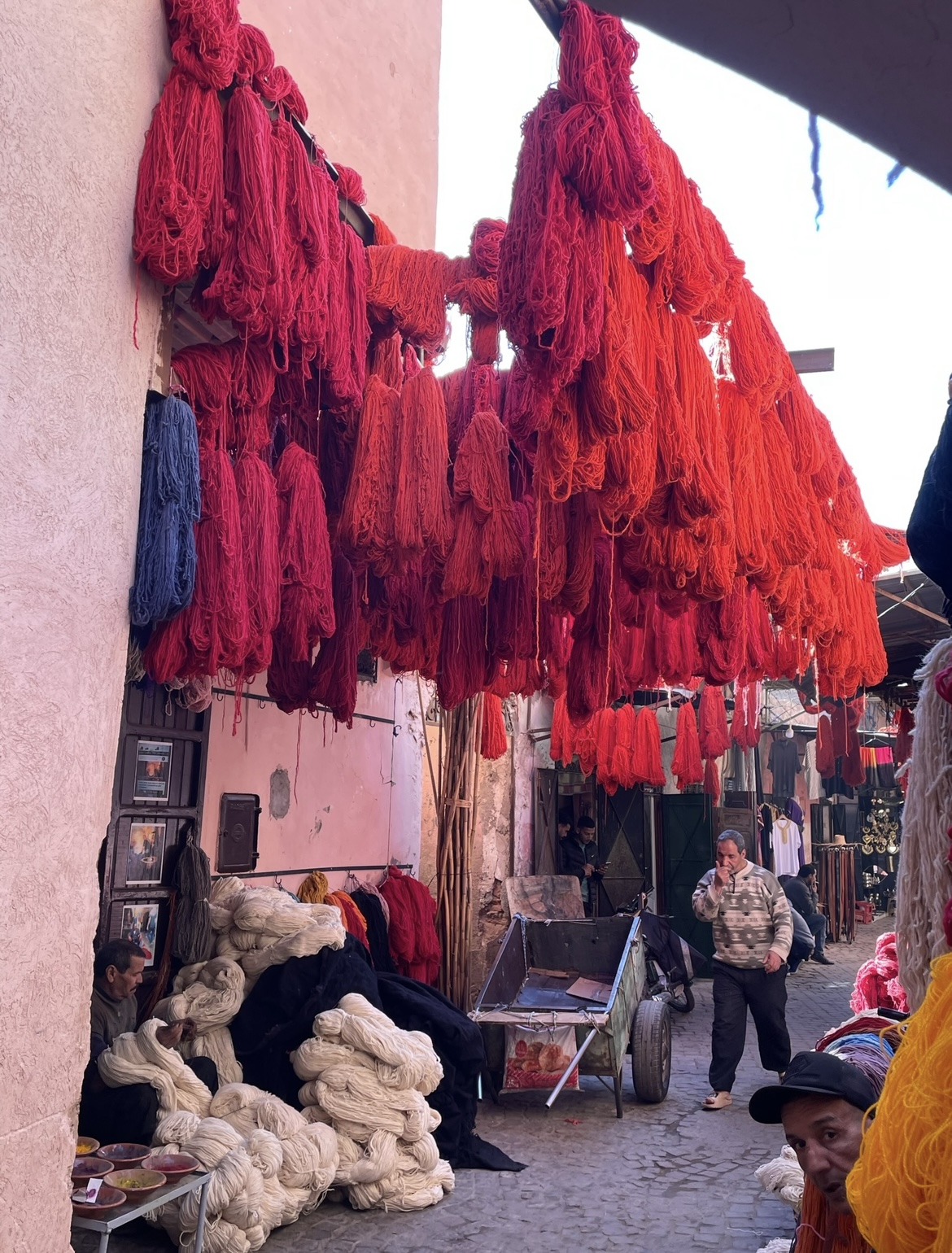
Ethical & Responsible Travel in Morocco
Traveling responsibly in Morocco is about making conscious choices that respect local culture, protect the environment, and support communities. As a visitor, your behavior and spending can have real impact. Here’s how to travel with intention:
1. Support Local, Not Luxury
- Choose locally-owned riads, guesthouses, and restaurants instead of international chains.
- Buy directly from artisans in medinas — avoid mass-produced souvenirs made abroad.
- Take guided tours with community-based or cooperative-run companies, especially in rural areas and the Sahara.
- If you’re bargaining (which is expected), keep it lighthearted and fair — people’s livelihoods are involved.
2. Respect Animal Welfare
- Camels are living beings, not props — only ride with operators who care for them properly (limited work hours, no visible injuries, access to food and water).
- Avoid snake charmers and monkey handlers in places like Jemaa el-Fnaa (Marrakech). These are often abusive and exploitative. Don’t pay or take photos.
- Don’t feed stray cats or dogs unless you know it’s safe — instead, consider donating to Moroccan animal shelters like HSAM or SFT Animal Sanctuary.
3. Tread Lightly
- Bring a reusable water bottle (filtered if needed), a tote bag, and say no to plastic whenever possible.
Morocco’s natural beauty is fragile — stick to marked paths when hiking and don’t remove rocks, plants, or sand from the desert. - Choose eco-conscious desert camps that manage waste properly and use solar energy or other sustainable resources.
-
Dress & Act Respectfully
- While Morocco is relatively tolerant, it’s still a conservative country — especially outside cities.
- Women should wear clothing that covers shoulders and knees in rural and religious areas.
- Men should also avoid walking shirtless in public or wearing tank tops in sacred spaces.
- Always ask before taking someone’s photo, especially in markets or small villages.
5. Learn & Engage
- Learn a few words of Darija (Moroccan Arabic) or French — locals appreciate the effort.
- Accept invitations with care and curiosity — Moroccan hospitality is generous, but always trust your instincts.
- Visit women’s cooperatives, Amazigh cultural centers, or local cooking classes to engage in mutual exchange — not just consumption.
🚫 Avoid Travel Faux Pas
- Don’t photograph military buildings, police, or government offices.
- Public displays of affection are frowned upon, especially outside major cities.
- Haggling is expected in souks — but not in restaurants, pharmacies, or fixed-price shops.
- Don’t enter mosques unless explicitly open to non-Muslims (the Hassan II Mosque in Casablanca is one exception).
✅ A Quick Responsible Travel Checklist
☑ Stay in locally owned accommodations
☑ Support fair-wage guides and artisans
☑ Avoid animal exploitation
☑ Reduce plastic and waste
☑ Dress modestly and ask before taking photos
☑ Respect traditions, especially during Ramadan or religious holidays
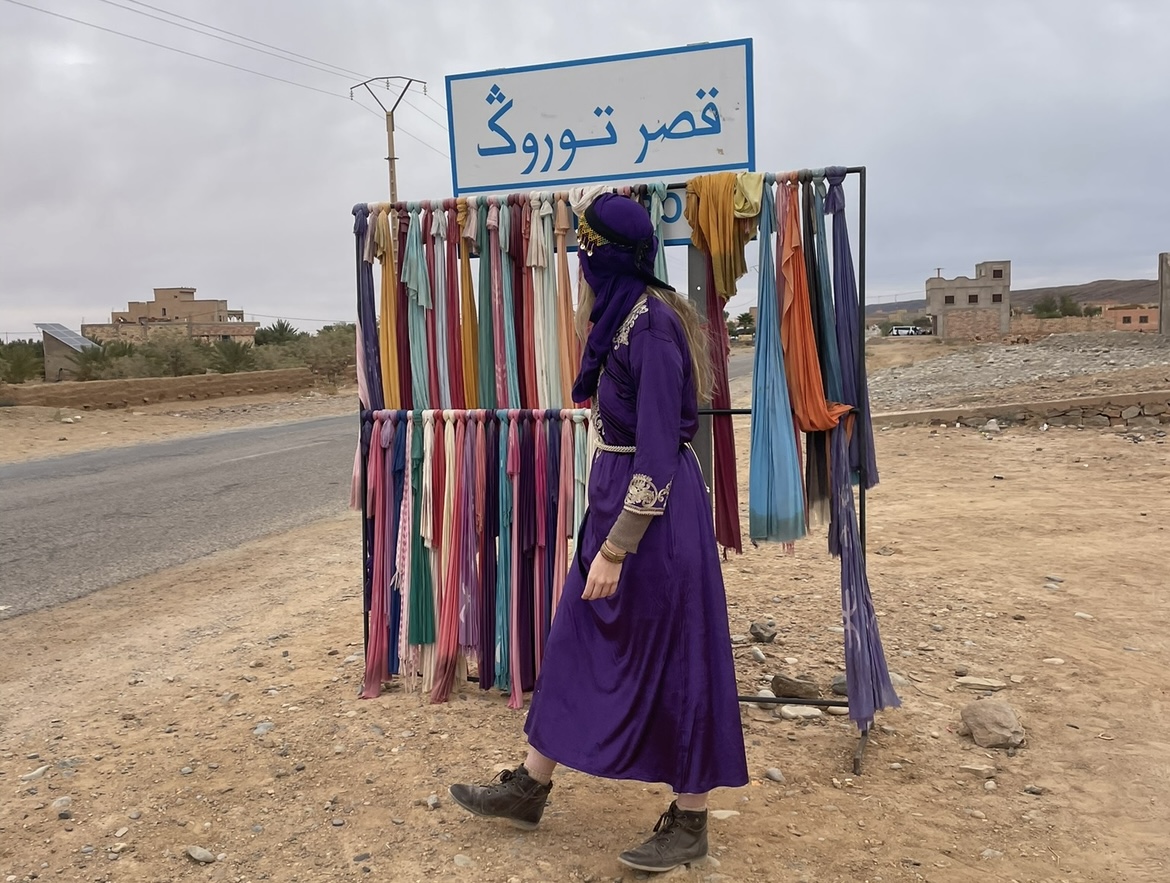
Safety & Health Tips
Morocco is generally a safe and welcoming country for travelers, including solo women. But like anywhere, being aware and prepared can help you avoid common issues and stay healthy on the road. Here’s what to keep in mind.
General Safety
- Petty theft and scams can happen, especially in crowded places like Marrakech’s Jemaa el-Fnaa, Fes medina, and train stations.
→ Keep your bag zipped, use a crossbody purse, and avoid displaying valuables like flashy jewelry or expensive cameras. - Fake guides (called faux guides) may approach you in touristy areas. Always book licensed guides through your riad, hotel, or trusted agency.
- Solo travelers are generally safe but may experience unwanted attention. A firm “La, shukran” (“No, thank you”) usually works well.
Health & Hygiene
- Tap water is safe in some cities, but bottled or filtered water is the safer choice, especially in rural areas.
- Street food is part of the experience, but choose busy vendors with high turnover. Look for cooked, hot food rather than raw or lukewarm items.
- Traveler’s diarrhea is common. Pack probiotics, anti-diarrheal meds, and rehydration salts just in case.
- Pharmacies are everywhere and generally well-stocked. Moroccan pharmacists often speak French or English and can offer advice or treatments.
Insects & Animals
- Mosquitoes can be an issue, especially near the coast or oases. Bring repellent and use it at night.
- Stray cats and dogs are common. Avoid petting them unless you’re sure they’re safe and healthy. Rabies exists in Morocco — consider a pre-travel rabies vaccine if you’ll be in rural areas for long periods.
- Snakes and scorpions are rare, but more common in the deep desert. Don’t walk barefoot outside at night when camping.
Heat, Sun & Weather
- Morocco can be extremely hot, especially in summer (May–September) in the south and desert regions.
→ Drink plenty of water, take breaks in the shade, and wear light, breathable clothing. - Sunscreen, sunglasses, and a hat are essential year-round, especially at high altitudes or in the Sahara.
- Cold nights in the desert and Atlas Mountains can surprise travelers. Pack warm layers even in summer.
+ What to Pack for Health & Safety
- Reusable water bottle with filter (like Grayl or Lifestraw)
- Sunscreen & lip balm with SPF
- Hand sanitizer & wet wipes
- Small first aid kit (band-aids, antiseptic, rehydration salts)
- Anti-diarrheal meds & probiotics
- Bug spray (with DEET or natural alternatives)
- Copies of your passport and travel insurance
- Women: Bring menstrual products (can be hard to find outside cities)
Emergency Numbers
- Police: 19 (from landline) / 112 (from mobile)
- Medical Emergency/Ambulance: 150
Fire: 15
Tourist Police (in major cities): Ask your riad or hotel for the closest office
Vaccinations & Insurance
- No vaccines are required for entry, but recommended vaccines include:
- Hepatitis A
- Typhoid
- Tetanus (make sure it’s up to date)
- Rabies (optional, for long stays or rural travel)
- Travel insurance that covers medical emergencies, theft, and cancellations is highly recommended. Moroccan clinics and hospitals are decent in cities, but rural care can be limited.
Where to Stay: Tips for Ethical Accommodation in Morocco
Morocco offers a wide range of places to stay—from bustling city riads to desert camps and mountain lodges. Choosing your accommodation thoughtfully can make a big difference in supporting local communities and preserving Morocco’s unique culture and environment.
What Is a Riad?
Most visitors stay in riads, traditional Moroccan houses with an interior garden or courtyard. Riads are often family-owned and restored historic homes, offering an authentic experience of Moroccan architecture and hospitality.

Tips for Finding Ethical Accommodation
- Support Locally Owned Riads and Guesthouses
-
- Opt for riads or guesthouses run by Moroccan families or local cooperatives rather than large hotel chains.
- This helps keep money within the community and supports local employment.
- Many smaller riads reinvest in their neighborhoods and maintain authentic cultural experiences.
- Prioritize Eco-Friendly Practices
-
- Look for accommodations that minimize water and energy use, recycle waste, and avoid single-use plastics.
- Some riads use solar power or have water-saving systems, which are important in Morocco’s arid climate.
- Check if they use locally sourced and organic food for meals.
- Choose Socially Responsible Hosts
-
- Some riads work with women’s cooperatives, employ marginalized groups, or donate part of their earnings to community projects.
- Support places that promote fair wages and good working conditions for staff.
- Avoid Over-Touristed or Overdeveloped Areas
-
- Consider staying in lesser-known neighborhoods or smaller towns to help spread tourism benefits and reduce pressure on hotspots like Marrakech medina.
Accommodation Types & Recommendations
| Type | Description & Ethical Considerations | Examples/Notes |
| Riads | Traditional houses, often restored by families or locals. | Riad Anata (Marrakech), Dar Zellij (Fes) |
| Eco-lodges | Off-grid, sustainable lodging near nature (Atlas Mountains, desert). | Terre des Étoiles (Anti-Atlas), Eco-Lodge Ourika |
| Desert Camps | Choose camps with eco-standards and local Berber ownership. | Luxury camps like Scarabeo or sustainable camps near Merzouga |
| Guesthouses | Small, family-run, often in smaller towns or medinas. | Dar Ahlam (Skoura), Maison du Sud (Essaouira) |
| Hostels & Budget | Support community hostels that employ locals and minimize impact. | Equity Point Marrakech, Hostel Waka Waka Fes |
Ethical Dining & Hospitality
- Many riads offer home-cooked meals using locally sourced ingredients. Supporting these meals means you help local farmers and cooperatives.
- Try places involved with women’s cooperatives who produce argan oil, pottery, or traditional crafts served or sold on-site.
Booking Tips
- Book directly when possible — it helps smaller businesses avoid high commission fees from online travel agencies.
- Check reviews for ethical practices or reach out and ask hosts about their sustainability and community involvement.
- Consider longer stays to build a deeper connection and provide more meaningful income to your hosts.
Summary: Ethical Stay Checklist
- Locally owned and operated
- Uses eco-friendly practices (energy, water, waste)
- Fair wages and community support
- Supports local food and artisans
- Avoids contributing to overtourism in fragile areas
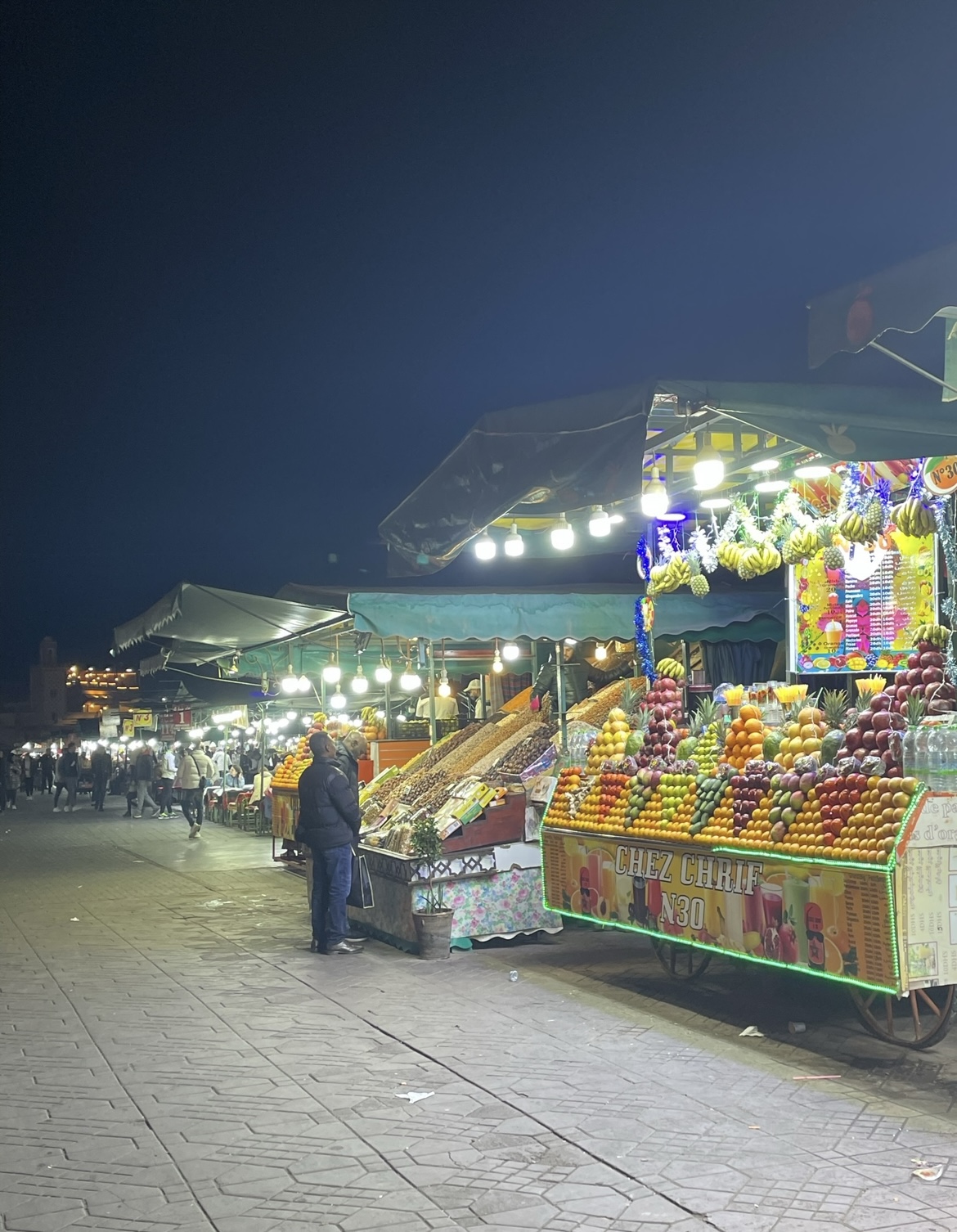
Best Areas to Stay in Morocco
Marrakech
- Medina
The historic old city, full of winding alleys, souks, and traditional riads. Perfect if you want to be in the heart of the action. It’s lively, sometimes noisy, and very atmospheric. Great for first-timers. - Gueliz
The modern district with cafes, shops, and nightlife. More Western-style hotels and restaurants. Quieter at night and easier for walking outside the tourist crowds. - Hivernage
Upscale neighborhood with luxury hotels, clubs, and green spaces. Good if you want comfort and nightlife but still close to the medina.
Fes
- Fes el-Bali (Old Medina)
UNESCO-listed, the largest car-free urban area in the world. Stay here for authentic medieval streets, crafts, and historic sites. Accommodation is mostly traditional riads. - Fes el-Jdid
A bit quieter and more residential, with palaces and gardens. Good for a calmer stay but still close to the old city’s highlights. - Ville Nouvelle
The French colonial area with wider streets, modern shops, and cafes. Easier for first-time visitors unfamiliar with the medina maze.
Chefchaouen
- Medina
The blue-washed old town is the main attraction here. Most riads and guesthouses are tucked inside the medina walls, offering picturesque views and walking access to markets and cafes. - Outskirts
For quieter, more nature-oriented stays, some eco-lodges and guesthouses are located just outside the medina with views of the Rif Mountains.
Essaouira
- Medina
Compact and charming, with seafood markets, artisan shops, and sea views. Many riads and boutique hotels here. Great for walking everywhere. - Beachfront / Kasbah Area
Near the old fort with ocean views and seafood restaurants. More relaxed atmosphere, good for beach lovers. - Mellah (Jewish Quarter)
A quieter area with interesting history and some cozy guesthouses.
Merzouga / Sahara Desert Gateway
- Merzouga Village
The base town before heading into the desert. Small guesthouses and hotels with basic amenities. Good for acclimatizing and arranging tours. - Desert Camps
Authentic Berber camps or luxury eco-camps deeper in the desert dunes. Stay overnight under the stars for a once-in-a-lifetime experience.
Casablanca
- Maarif
The shopping and nightlife district with many restaurants and hotels. Modern and urban feel. - Habous Quarter
A charming mix of traditional Moroccan and French colonial architecture. Known for artisan shops and quieter streets. - Ain Diab
The beachside area with resorts, cafes, and a lively promenade.
What to Eat in Morocco
Moroccan cuisine is a vibrant blend of Arab, Berber, Mediterranean, and African influences. It’s known for bold spices, fresh ingredients, and communal dining. Whether you’re savoring street food in a bustling medina or enjoying a home-cooked meal in a riad, these dishes are essential tastes of Morocco.
Classic Moroccan Dishes
- Tagine
A slow-cooked stew named after the conical clay pot it’s cooked in. Common versions include lamb with prunes and almonds, chicken with preserved lemon and olives, or vegetable tagine. Rich, aromatic, and hearty. - Couscous
Steamed semolina grains served with vegetables, meat (usually lamb or chicken), and flavorful broth. Traditionally eaten on Fridays with family and friends. - Harira
A thick, spicy soup made with tomatoes, lentils, chickpeas, and lamb, often eaten to break the fast during Ramadan. - Pastilla (Bastilla)
A savory-sweet pie combining flaky pastry, pigeon or chicken meat, almonds, cinnamon, and powdered sugar — a festive delicacy originally from Fes.

Chicken tangine!
Street Food & Snacks
- Msemen
Flaky, layered flatbread, often served with honey or stuffed with savory fillings. Perfect for breakfast or a snack. - B’stilla Bites & Sfenj
Small fried doughnuts (sfenj) dusted with sugar, and pastilla bites are popular street treats. - Kebabs & Brochettes
Skewered, grilled meats seasoned with spices, available at food stalls and markets. - Zaalouk
A smoky cooked salad made from eggplant, tomatoes, garlic, and spices — served as a dip with bread.
Breakfast & Sweets
- Mint Tea
Morocco’s signature green tea with fresh mint and lots of sugar — more than a drink, it’s a social ritual. - Baghrir
“Thousand-hole” pancakes served with butter and honey, perfect for breakfast or teatime. - Chebakia
Deep-fried, sesame-coated pastries glazed with honey, commonly eaten during Ramadan.
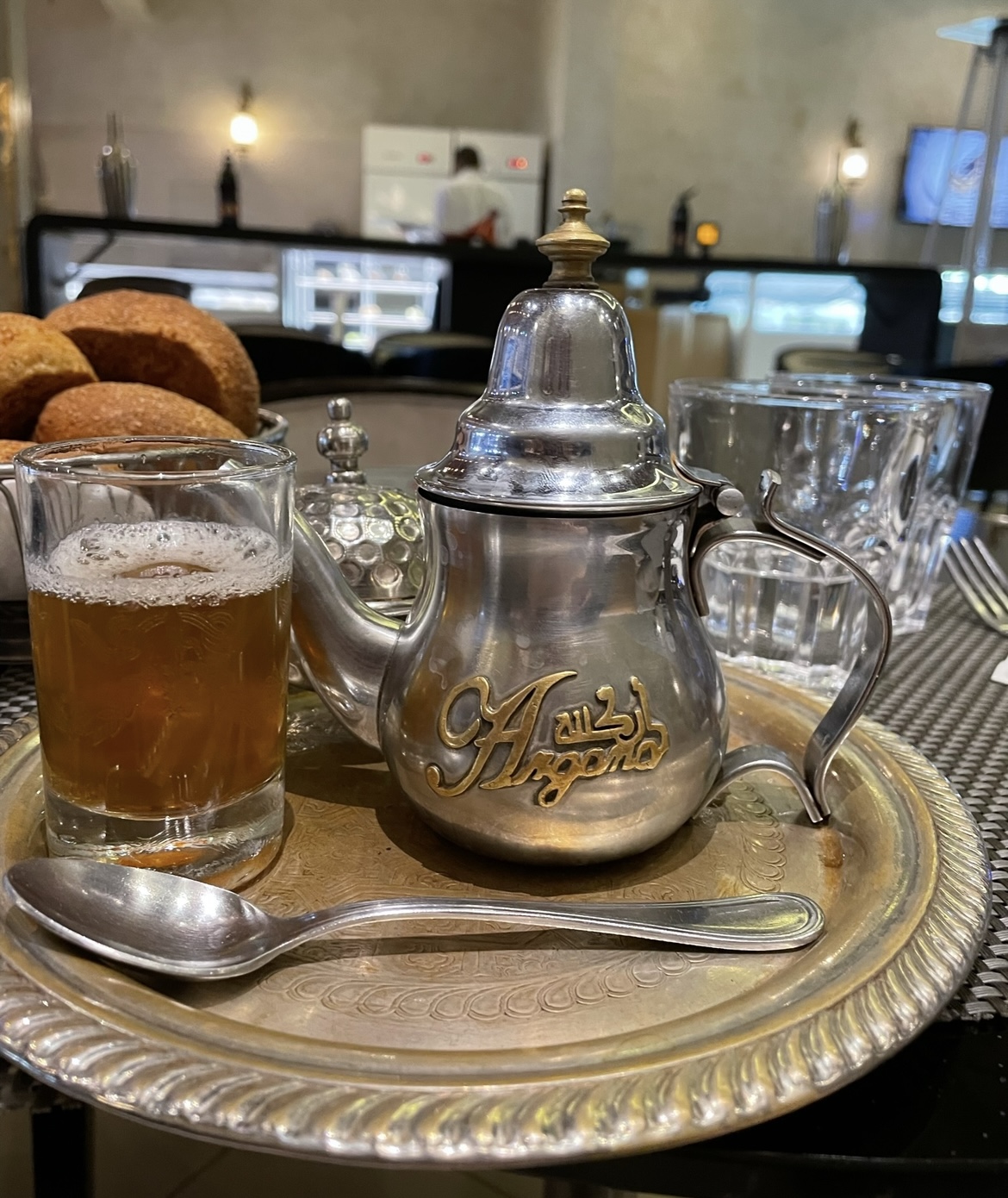
Mint tea
Vegetarian & Vegan Options
Moroccan cuisine has many naturally plant-based dishes:
- Lentil and chickpea stews
- Stuffed vegetables (dolmas)
- Salads like taktouka (tomato and pepper)
- Fresh breads and olives
Be sure to ask if dishes include meat or broth if you follow a strict vegetarian or vegan diet.
Dining Etiquette Tips
- Meals are often eaten with right hand only using bread as a utensil.
- Sharing food from the same plate is common and a sign of hospitality.
- If invited to a Moroccan home, try a little of everything and accept at least one serving to show respect.
- Tipping is appreciated in restaurants (around 10-15%).
 Morocco Packing List
Morocco Packing List
Essentials
- Passport & copies
- Travel insurance info
- Flight tickets & reservations (printed or digital)
- Local currency (Moroccan Dirham – MAD) and credit/debit cards
- Universal power adapter (Morocco uses Type C & E plugs, 220V)
- Reusable water bottle with filter (tap water isn’t always safe)
- Daypack or backpack for daily outings
- Sunglasses & wide-brim hat for sun protection
- Sunscreen & lip balm (high SPF)
- Hand sanitizer & wet wipes
- Basic first aid kit (band-aids, antiseptic, pain relievers)
- Medications (prescription and over-the-counter, including anti-diarrheal and probiotics)
- Reusable shopping bag (to reduce plastic use)
Clothing
- Lightweight, breathable clothes (linen, cotton)
- Long sleeves and pants for sun protection and modesty (especially in rural and religious areas)
- Scarf or shawl (for visiting mosques or covering shoulders)
- Comfortable walking shoes or sandals
- Warm layers for cooler nights, especially in the desert or mountains
- Swimwear (for coastal areas and pools)
- Rain jacket or umbrella (if traveling in winter months)
Toiletries & Personal Care
- Travel-sized toiletries (many Moroccan hotels provide basics, but bring your preferred brands)
- Toothbrush, toothpaste, floss
- Feminine hygiene products (can be harder to find outside big cities)
- Insect repellent (with DEET or natural alternative)
- Small sewing kit and safety pins (for quick fixes)
Extras & Tech
- Phone, charger, and power bank
- Camera with extra batteries/memory cards
- Travel guidebook or offline map app
- Phrasebook or language app (Arabic and French phrases)
- Notebook and pen (for journaling or notes)
- Lightweight travel towel (for hostels or beach)
Cultural Considerations
- Modest clothing to respect local customs
- Closed-toe shoes for walking in markets and uneven terrain
- Gifts or small tokens if visiting local families or staying in rural guesthousesDesert-Specific Gear (if Visiting Sahara)
- Warm jacket and layers (nights get cold)
- Sunglasses and scarf or bandana (to protect from sand and sun)
- Closed-toe shoes or boots (for walking in dunes)
- Flashlight or headlamp
Cultural Etiquette & Social Norms in Morocco
Understanding and respecting Moroccan customs will enrich your experience and help you connect warmly with locals. Morocco is a predominantly Muslim country with deep-rooted traditions, so being mindful of cultural norms is important.
Dress Code
- Dress modestly: Both men and women should cover shoulders and knees, especially in rural areas and religious sites. Women may wear long skirts or loose pants and a scarf to cover their shoulders or hair if visiting mosques.
- Avoid tight or revealing clothing to respect local sensibilities.
- In touristy areas like Marrakech’s medina, clothing is more relaxed but still modest.
Greetings & Interaction
- A polite “Salam Alaikum” (Peace be upon you) is a common greeting; respond with “Wa Alaikum Salam”.
- Handshakes are typical among men but may be softer or avoided with the opposite gender unless initiated by the local.
- It’s polite to greet the eldest person first in group settings.
- Avoid public displays of affection, which can be considered inappropriate.
Dining Etiquette
- Wash hands before eating; meals are often eaten with the right hand using bread to scoop food.
- Sharing food from a common dish is a sign of hospitality.
- If invited to a Moroccan home, it’s respectful to try a bit of everything offered.
- Accepting a second or third serving shows appreciation.
Photography
- Always ask permission before photographing people, especially women or in rural areas.
- Avoid taking pictures of government buildings, military sites, or police.
Communication Tips
- Speaking some basic Arabic or French phrases is appreciated and can open doors to friendlier interactions.
- Be patient and polite during negotiations in markets; haggling is expected but should remain respectful.
- Avoid sensitive topics like politics or religion unless you know someone well.
Social Behavior
- Public behavior should be calm and respectful. Loud arguments or displays of anger are frowned upon.
- When visiting religious sites, follow guidelines and dress codes carefully.
Festivals & Holidays
- Be aware of Ramadan: eating, drinking, and smoking in public during daylight hours are discouraged as a sign of respect.
- Moroccan festivals often involve music, dance, and communal meals—participating respectfully is a wonderful way to experience local culture.
Language Essentials in Morocco
Morocco is a multilingual country where several languages are commonly spoken. Knowing a few key phrases can enhance your experience, help you navigate daily interactions, and show respect to locals.
Official and Common Languages
- Arabic (Modern Standard Arabic is the official language)
- Darija (Moroccan Arabic dialect) — the most widely spoken everyday language
- Berber (Amazigh) — spoken in rural and mountainous areas
- French — widely used in business, government, and tourism
- Spanish — spoken in northern regions and parts of the Sahara
Useful Phrases in Moroccan Arabic (Darija)
| English | Darija (Pronunciation) | Notes |
| Hello / Peace | Salam Alaikum (sa-lam a-lay-kum) | Standard greeting |
| Response to hello | Wa Alaikum Salam (wa a-lay-kum sa-lam) | Peace be upon you, too |
| Please | Afak (a-fak) | Polite when requesting |
| Thank you | Shukran (shoo-kraan) | Common expression of thanks |
| Yes | Na’am (na-am) or Iyah (ee-yah) | Iyah is more informal |
| No | La (la) | Simple and clear |
| Excuse me / Sorry | Smah li (smah lee) | To get attention or apologize |
| How much? | Shhal? (sh-hal) | When asking prices |
| Where is…? | Fin…? (feen) | To ask for directions |
| I don’t understand | Ma fhemtsh (ma fhem-tsh) | Useful for clarifying |
| Bathroom | Toilette (toilet) or Hmaam (h-mam) | Toilet is French, Hmaam is Arabic |
Tips for Communication
- French is commonly spoken in urban areas and tourist spots, so knowing some French phrases can be very helpful.
- Moroccans appreciate any effort to speak Darija or Arabic, even if it’s just greetings or thank-yous.
- Speak clearly and slowly, especially when using new phrases.
- Nonverbal communication, like smiling and polite gestures, goes a long way.
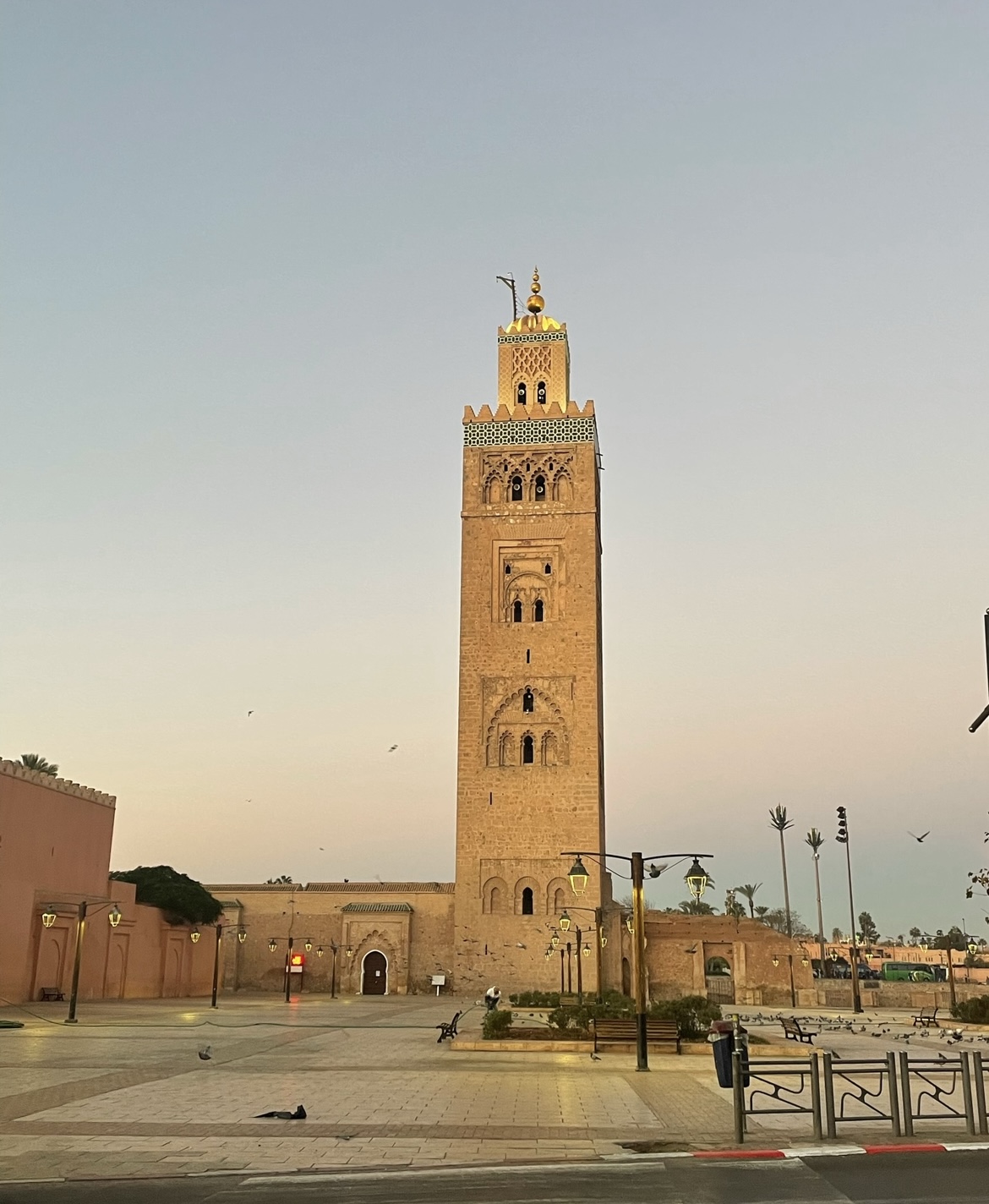 Scams & Tourist Traps in Morocco
Scams & Tourist Traps in Morocco
Morocco is a welcoming country, but like many popular tourist destinations, it has its share of scams and tourist traps. Being aware can help you avoid common pitfalls and protect your money and time.
Common Scams to Watch Out For
- Overpriced Taxi Rides
Always agree on a fare before getting in, especially for short rides or from airports and train stations. Use official taxis (small meters) and insist they use the meter or negotiate a fixed price. - Fake Guides or “Helpers”
Beware of unofficial guides who approach you near monuments or medinas offering tours or help with directions. They may pressure you into paying high fees or take you to shops where they get commissions. Use licensed guides or trusted companies instead. - Overcharging in Markets
Haggling is part of the shopping culture, but some vendors may quote prices several times higher for tourists. Research typical prices in advance, start with a low offer, and walk away if the price feels unfair. - “Free” Gifts or Henna
Some street vendors or performers may offer “free” henna tattoos or gifts, then demand payment afterward. Politely refuse and keep moving. - Photo Fees
Always ask permission before photographing locals. Some may ask for payment afterward, especially children or street performers.
Tourist Trap Tips
- Avoid Pressured Visits
Some tours or “guides” bring tourists to specific shops where you might feel pressured to buy expensive goods. Book tours that focus on experiences rather than shopping stops. - Beware of Overpriced Restaurants in Tourist Areas
Restaurants near main squares may charge premium prices. Ask locals for recommendations or explore side streets for better value meals. - Fake Currency and Change Tricks
Check your change carefully when paying cash. Some vendors may try to give incorrect change, so be vigilant.
How to Stay Safe
- Use official transport services and book tours through reputable companies.
- Keep your belongings secure and be mindful of pickpockets in crowded areas.
- Carry small bills and coins for small purchases and taxis.
- Trust your instincts—if something feels off, it probably is.
- Learn a few local phrases to communicate clearly and confidently.
Women Travelers in Morocco
Morocco is a fascinating destination for women traveling solo or in groups, offering rich culture, stunning landscapes, and warm hospitality. While generally safe, women travelers should take some extra precautions and cultural awareness to ensure a smooth and enjoyable trip.

Spongebob cappuccino hehe
Safety Tips
- Dress modestly to respect local customs—cover shoulders, cleavage, and knees. Loose-fitting clothes help you stay comfortable and avoid unwanted attention. Carrying a scarf is useful for covering your head or shoulders when visiting religious sites.
- Avoid walking alone at night, especially in poorly lit or quiet areas. Stick to well-populated streets or take official taxis.
- Be friendly but cautious in interactions. Some men may be overly curious or persistent; a polite but firm “no thank you” usually works.
- Trust your instincts — if a situation feels uncomfortable, leave or seek help.
Accommodation Tips
- Choose women-friendly guesthouses or riads that cater to female travelers, often offering female-only dorms or private rooms with good security.
- Staying in central, well-reviewed neighborhoods reduces travel time and risk.
- Some hostels and hotels offer women-only floors or common areas for added comfort.
Solo Travel & Socializing
- Joining group tours or day trips can be a great way to meet other travelers and explore safely.
- Many local women-run tours or workshops focus on crafts, cooking, or cultural experiences, offering meaningful connections.
- Learn basic Moroccan Arabic or French phrases to ease communication.
Cultural Sensitivity
- Public displays of affection are frowned upon in Morocco, so be mindful of your behavior in public.
- Photography of women, especially locals, should always be done with permission.
- When invited to a Moroccan home, follow the host’s lead on etiquette and customs.
Health & Wellness
- Carry feminine hygiene products as supplies can be limited outside major cities.
- Stay hydrated, use sunscreen, and rest when needed—travel can be physically demanding.
- Have a small emergency kit with basics like painkillers and any personal medication.
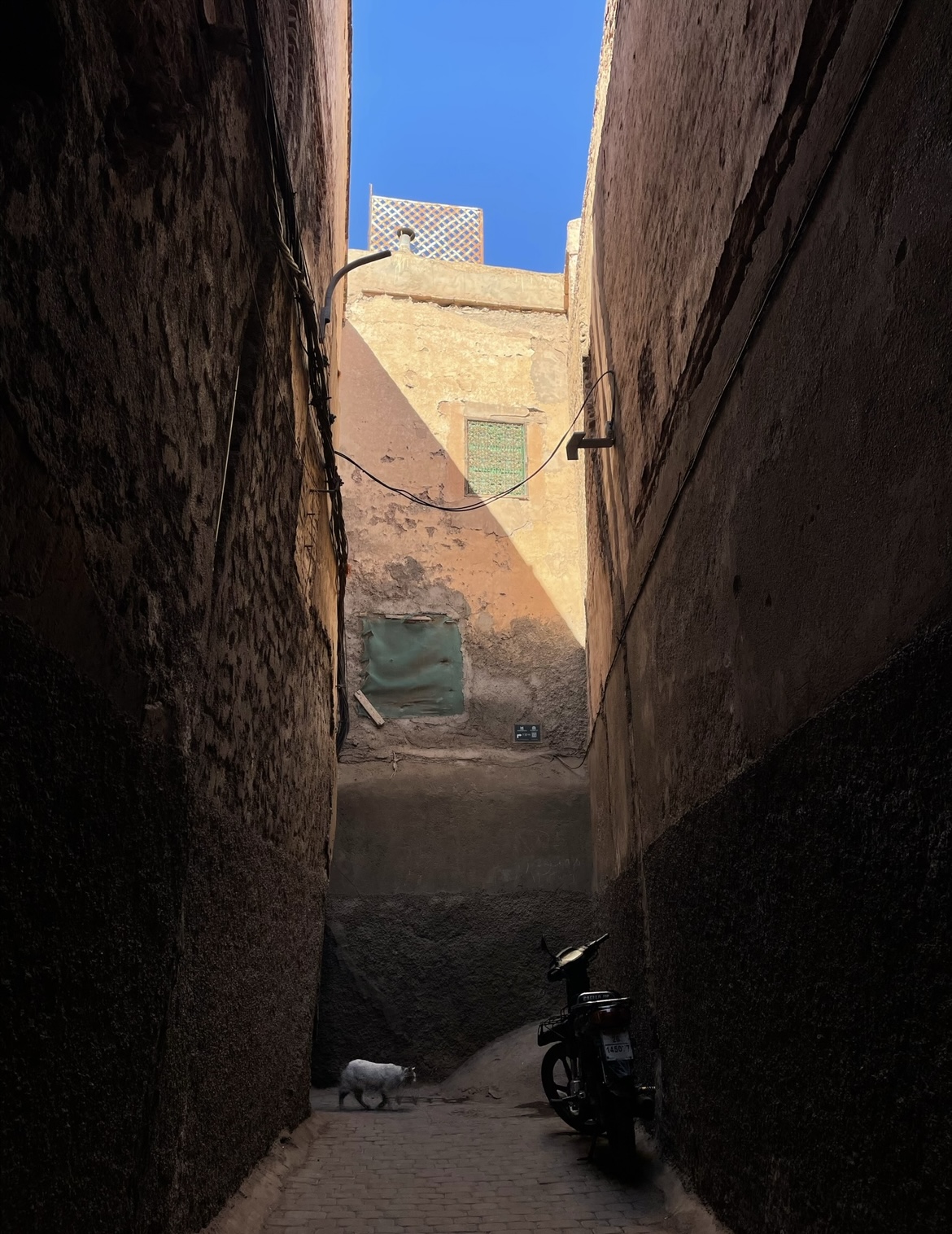 Accessibility & Mobility in Morocco
Accessibility & Mobility in Morocco
Traveling in Morocco offers many incredible experiences, but it’s important to be aware that accessibility for people with disabilities or limited mobility can be challenging, especially outside major cities. Here’s what you need to know to plan a smoother trip:
Public Transportation & Getting Around
- Taxis: Petit taxis (small city taxis) are common in cities like Marrakech, Fes, and Casablanca. They are usually small cars with limited space and may not be wheelchair accessible. Grand taxis serve longer distances but also lack specific accessibility features.
- Buses and Trains: Public buses and trains connect major cities but rarely have accommodations for wheelchair users or those with limited mobility. Train stations may have limited elevator or ramp access.
- Car Rentals: Renting a car is an option for more flexibility, but driving in Morocco requires confidence with local traffic patterns.
Walking & Streets
- Many historic areas, especially medinas (old city quarters), have narrow, uneven cobblestone streets, steps, and crowded markets, making navigation difficult for wheelchair users or those with mobility aids.
- Some newer parts of cities have better sidewalks and ramps, but uneven surfaces remain common.
Accommodation
- Accessibility standards vary widely. Most traditional riads and guesthouses have stairs and limited elevator access. Some modern hotels in major cities offer wheelchair-accessible rooms and facilities.
- Always inquire in advance about specific accessibility features, such as step-free entry, adapted bathrooms, and elevator availability.
Tips for Travelers with Mobility Needs
- Plan ahead by contacting accommodations and transport providers about accessibility.
- Consider staying in newer hotels in major cities if accessibility is a priority.
- Use private taxis or arranged transport when possible for more convenience.
- If visiting the desert or rural areas, expect limited infrastructure for mobility assistance.
Additional Resources
- Some local NGOs and organizations work on improving accessibility awareness and services, though options remain limited.
- Travel forums and disability travel groups can offer up-to-date advice from recent travelers.
Festivals & Holidays in Morocco
Morocco’s rich cultural tapestry is beautifully expressed through its many festivals and public holidays, offering travelers a chance to witness traditional music, dance, food, and spirituality. Timing your visit around these events can provide a deeper connection to Moroccan life.
Major Religious Holidays
- Ramadan
The Islamic holy month of fasting, Ramadan shifts each year based on the lunar calendar. During daylight hours, eating, drinking, and smoking in public are discouraged out of respect. Evenings come alive with special meals (iftar), prayers, and gatherings. Many restaurants may close during the day, but tourist areas often remain open. - Eid al-Fitr
Marks the end of Ramadan with celebrations, feasts, and communal prayers. It’s a joyous time when families gather and charity is emphasized. - Eid al-Adha
Known as the “Festival of Sacrifice,” this holiday honors Abraham’s willingness to sacrifice his son. It includes prayers, communal meals, and the ritual slaughtering of animals, with meat shared generously.
Cultural Festivals
- Mawazine Music Festival (Rabat)
One of Africa’s largest music festivals, featuring international and Moroccan artists across various genres. Usually held in late spring or early summer. - Fes Festival of World Sacred Music
A unique event that brings together spiritual music traditions from around the world in the historic city of Fes. It usually takes place in June. - Gnaoua World Music Festival (Essaouira)
Celebrating the mystical Gnaoua music tradition, this festival combines African, Berber, and Arabic influences with contemporary sounds. - Rose Festival (Kelaat M’Gouna)
Held in the Valley of Roses each May, this festival celebrates the annual rose harvest with parades, music, and crafts.
National Holidays
- Throne Day (July 30)
Celebrates the current king’s accession with official ceremonies and public festivities. - Independence Day (November 18)
Marks Morocco’s independence from French and Spanish colonial rule in 1956, with patriotic events nationwide.
Tips for Travelers During Festivals
- Book accommodations and transport well in advance, as festivals attract large crowds.
- Festivals are a great chance to experience Moroccan hospitality but expect busy public spaces and higher prices.
- Participate respectfully—observe local customs, dress modestly, and ask before photographing people.
2025 Holidays in Morocco
| Date | Holiday Name | Type | Notes |
| January 1 | New Year’s Day | National Holiday | Celebrates the start of the Gregorian calendar year. |
| January 11 | Proclamation of Independence Day | National Holiday | Marks the 1944 declaration of Morocco’s independence from French colonial rule. |
| January 14 | Amazigh New Year (Yennayer) | National Holiday | Celebrates the traditional Berber (Amazigh) New Year. |
| March 31 | Eid al-Fitr | National Holiday | Marks the end of Ramadan; date may vary based on lunar calendar. |
| April 1 | Eid al-Fitr Holiday | National Holiday | Observed the day after Eid al-Fitr. |
| May 1 | Labour Day | National Holiday | Honors workers and their contributions. |
| June 6 | Eid al-Adha | National Holiday | Commemorates the willingness of Ibrahim (Abraham) to sacrifice his son; date may vary. |
| June 7 | Eid al-Adha Holiday | National Holiday | Observed the day after Eid al-Adha. |
| June 27 | Islamic New Year (Fatih Muharram) | National Holiday | Marks the Islamic New Year; date may vary based on lunar calendar. |
| July 30 | Throne Day | National Holiday | Celebrates King Mohammed VI’s accession to the throne in 1999. |
| August 14 | Oued Ed-Dahab Day | National Holiday | Commemorates the return of the Oued Ed-Dahab region to Morocco from Mauritania in 1979. |
| August 20 | Revolution Day | National Holiday | Marks the day King Mohammed V was exiled in 1953. |
| August 21 | Youth Day | National Holiday | Celebrates the birthday of King Mohammed VI. |
| September 5 | The Prophet Muhammad’s Birthday | National Holiday | Commemorates the birth of the Prophet Muhammad; date may vary based on lunar calendar. |
| November 6 | Green March Day | National Holiday | Commemorates the 1975 Green March into the Western Sahara. |
| November 18 | Independence Day | National Holiday | Celebrates Morocco’s independence from French and Spanish protectorates in 1956. |
Note on Islamic Holidays: Dates for Islamic holidays such as Eid al-Fitr, Eid al-Adha, Islamic New Year, and The Prophet Muhammad’s Birthday are based on the Islamic lunar calendar and may vary depending on moon sightings.
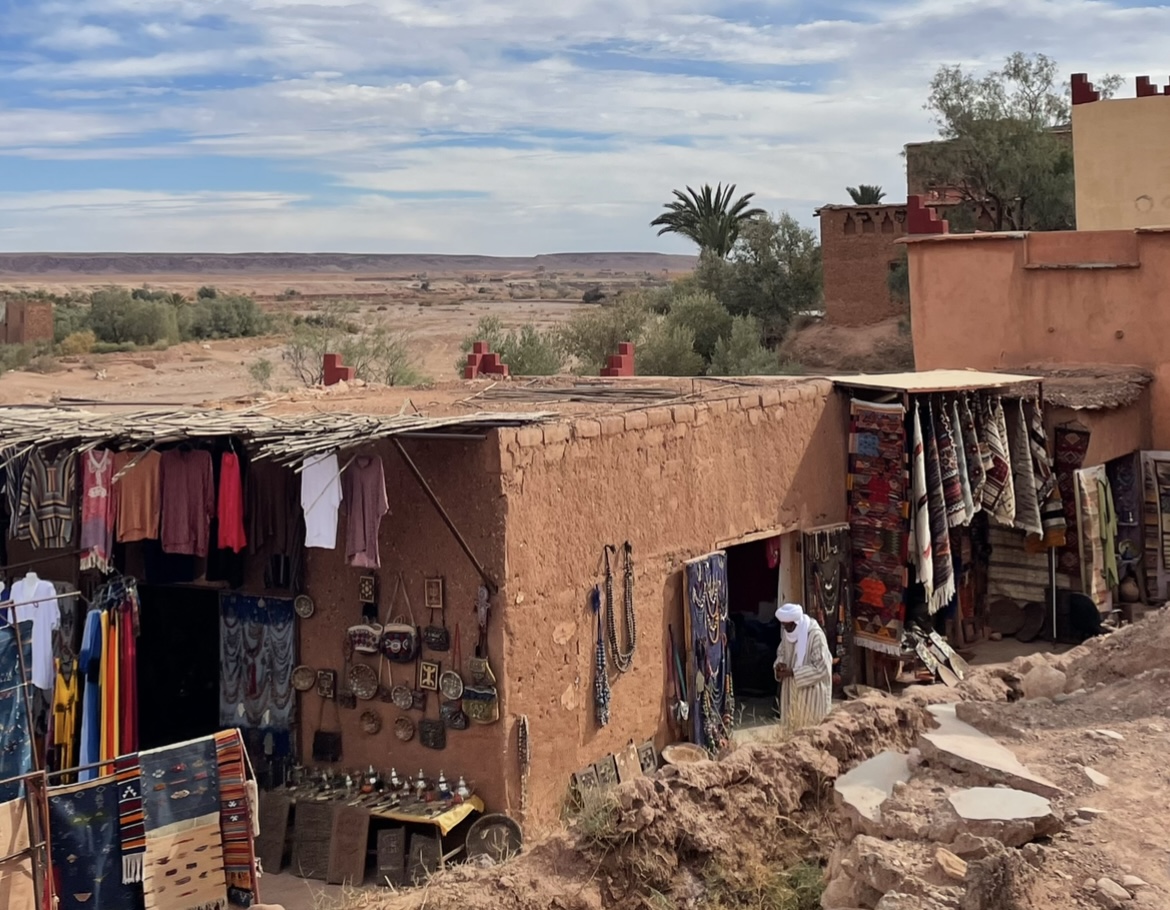 Eco Travel Tips for Morocco
Eco Travel Tips for Morocco
Traveling sustainably in Morocco helps preserve its stunning landscapes, rich culture, and vibrant communities for future generations. Here are some practical tips to reduce your environmental impact while enjoying your trip:
1. Minimize Waste
- Carry a reusable water bottle — tap water isn’t safe to drink, but many hotels and cafes offer filtered water refill stations.
- Bring a reusable shopping bag for markets to avoid plastic bags.
- Say no to single-use plastics like straws and disposable cutlery when possible.
2. Respect Nature & Wildlife
- Stick to marked trails when hiking or exploring deserts to avoid damaging fragile ecosystems.
- Avoid touching or disturbing wildlife and plants.
- Support eco-friendly tours that promote conservation and respect for natural habitats.
3. Support Local & Ethical Businesses
- Choose locally owned accommodations, restaurants, and shops to support Moroccan communities.
- Buy handmade crafts directly from artisans rather than mass-produced souvenirs.
- Opt for tour companies that prioritize environmental protection and fair wages for guides and staff.
4. Energy & Water Conservation
- Turn off lights, air conditioning, and electronics when not in use.
- Take shorter showers and reuse towels to save water in hotels and riads.
5. Transportation Choices
- Use public transport, bicycles, or walk when possible to reduce carbon emissions.
- If renting a car, consider fuel-efficient models or share rides to minimize impact.
6. Cultural Respect
- Learn about local customs and etiquette to engage respectfully with communities.
- Avoid behavior that could be seen as exploitative or disrespectful.
Learn Before You Go: Books, Documentaries & Podcasts about Morocco
Getting to know Morocco’s rich heritage and diverse perspectives can make your visit even more meaningful. Here are some top picks to get you started:
Recommended Books
- “The Caliph’s House: A Year in Casablanca” by Tahir Shah
A charming and humorous memoir about the author’s experience renovating a traditional Moroccan home and immersing himself in Casablanca’s culture. - “Dreams of Trespass: Tales of a Harem Girlhood” by Fatima Mernissi
A memoir blending personal history and cultural insights from one of Morocco’s leading feminist voices. - “Morocco That Was” by Walter Harris
A classic travelogue offering vivid descriptions of Morocco during the early 20th century. - “In Arabian Nights: A Caravan of Moroccan Dreams” by Tahir Shah
An enchanting exploration of Moroccan folklore, storytelling traditions, and cultural identity.
Documentaries
- “Morocco: Love in Times of War” (Netflix)
A historical drama series set in 1920s Tangier during the Rif War, showcasing Morocco’s colonial past. - “Casablanca Calling” (YouTube / Vimeo)
A documentary exploring Casablanca’s vibrant music scene and urban culture. - “The Source” (Available online)
Focuses on the lives of Moroccan women in rural areas, their traditions, and challenges.
Podcasts
- “Moroccan Voices”
A podcast featuring interviews with Moroccans from different regions, sharing stories about culture, social issues, and daily life. - “The MENA Show”
Covers contemporary Middle Eastern and North African topics, including episodes focused on Moroccan politics and society. - “Travel with Rick Steves” — Morocco Episodes
Offers practical travel tips and cultural insights from a well-known travel expert.
Conclusion
Morocco is a land of vibrant colors, rich traditions, and breathtaking landscapes—from the bustling souks of Marrakech to the serene dunes of the Sahara. Whether you’re wandering ancient medinas, savoring flavorful tagines, or connecting with the warmth of local hospitality, Morocco offers a travel experience that is both unforgettable and transformative.
By planning thoughtfully, respecting cultural customs, and traveling ethically, you can immerse yourself fully in the magic of this diverse country while supporting its communities and environment.
I hope this guide helps you prepare for a safe, meaningful, and inspiring journey. Safe travels and enjoy every moment of your Moroccan adventure!


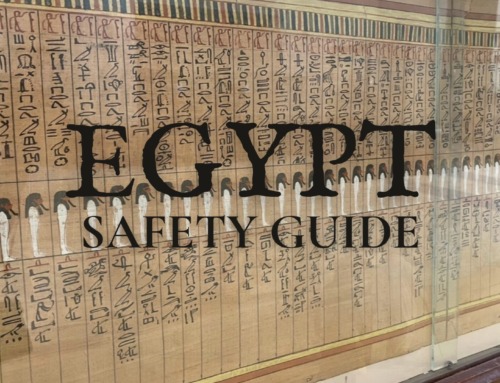
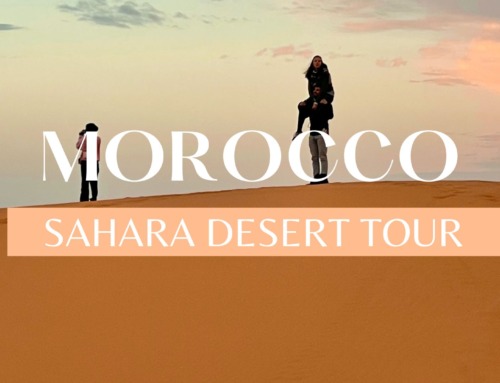
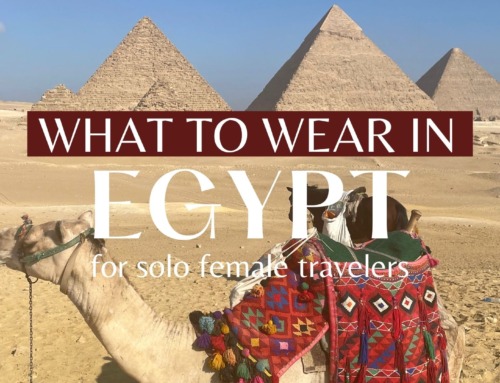
Leave A Comment